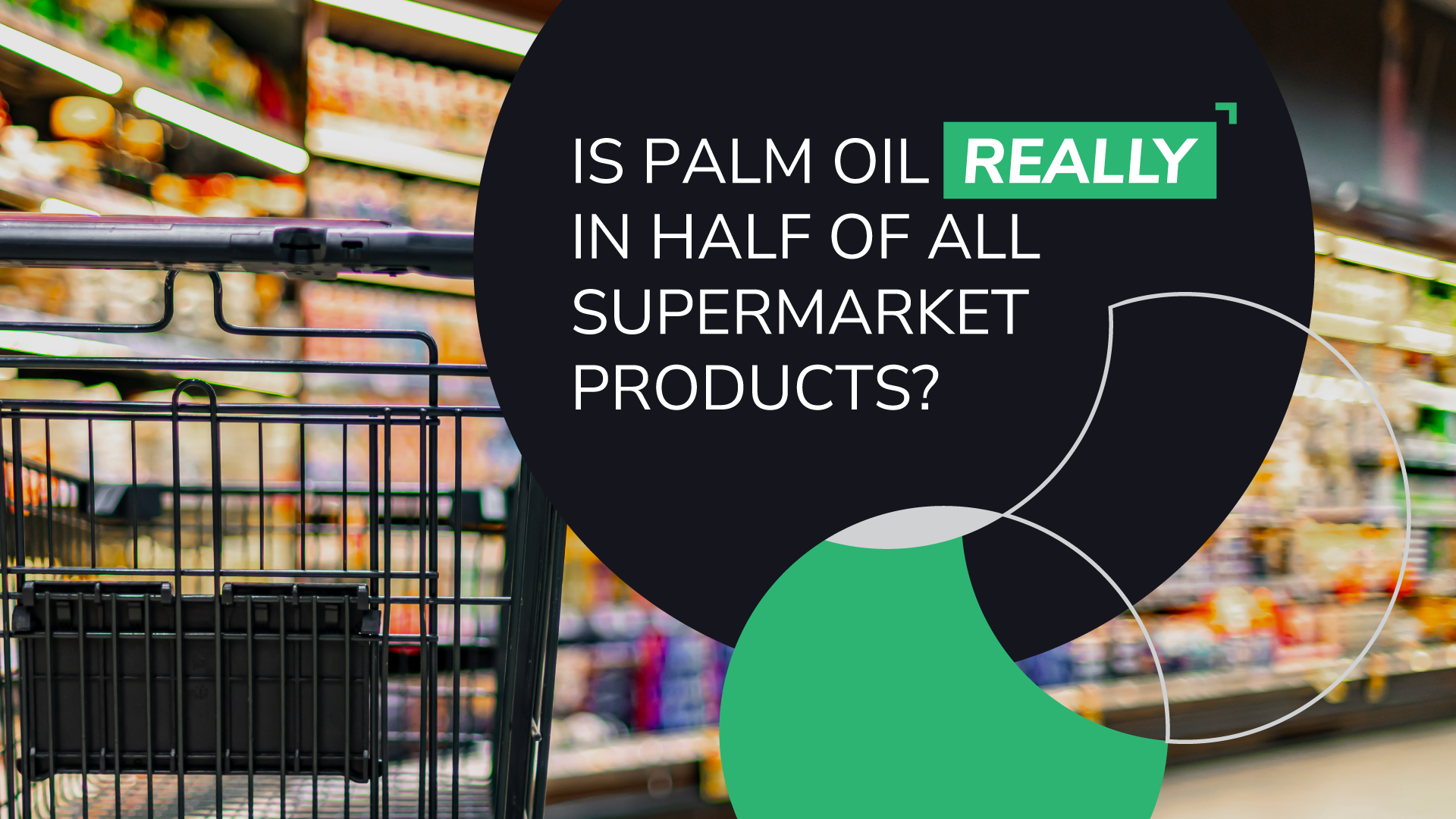
Is Palm Oil Really in Half of All Supermarket Products?
For years, you've heard the claim: palm oil is in 50% of the products you pick up at the supermarket. It’s a statistic repeated by the WWF, Ethical Consumer and even our good friends at the RSPO, not to mention countless news articles. But what if we told you that number isn’t true and was much, much lower?
The Myth vs. The Reality
Lead author Emily Meijaard and the research team behind the Does Palm Oil Really Rule the Supermarkets? report, analysed approximately 1,600 products across three major supermarket chains in the UK (Sainsbury’s), the Netherlands (Albert Heijn) and Australia (Woolworths). Here’s what they found:
- 7.9%: The percentage of packaged products that specifically list palm oil as an ingredient.
- 18%: The best estimate of total packaged products that contain palm oil when known derivatives (oleochemicals in toiletries and home care) are included.
The widely repeated, but now challenged, 50% WWF claim is believed to have originated in 2006 and has been accepted as fact ever since. There’s no doubt that the stat has contributed to consumer boycotts that, with hindsight, have been largely ineffective (also counterproductive, but that’s another story!).
After all, you can’t boycott what you can’t see!
The Real Problem: The Hidden Ingredient
This research raises the question: Why can’t we be certain which products contain palm oil?
The answer is the labelling transparency.
Many essential ingredients, known as oleochemicals (such as glycerine or emulsifiers found in toothpaste, shampoos, and processed food), can be made from various vegetable oils, including palm, soy or coconut. Crucially, supermarket labels do not require manufacturers to list the source crop of these derivatives.
This means that consumers trying to shop ethically or actively avoid palm oil are often purchasing products containing palm oil without being aware of it. As lead author, Emily Meijaard of Borneo Futures, states:
“For years, consumers have been told that palm oil is in half of everything they buy, when in fact it’s much, much less. The bigger issue here is transparency - we simply cannot know for sure what this percentage is. Without better transparency, traceability and clear labelling, customers can’t make informed decisions, or shop in a way that aligns with their values.”
You Can’t Boycott What You Can’t See
The report highlights that current labelling practices make it virtually impossible for consumers to make truly informed decisions. Even if you read every label, the hidden nature of oleochemicals means you will inevitably purchase products you may be trying to avoid.
For the sustainability movement, this lack of transparency is a major challenge. The report details that there’s a significant lack of transparency in ingredient labelling and a real scarcity of scientific research on the topic.
And while consumers rightly focus on palm oil due to its history of deforestation, the same challenges in terms of traceability and sustainability also apply to a wide range of other ingredients. If you boycott palm oil and substitute it for another, this may lead to a worse environmental impact than choosing palm! The fact is, you just don’t know.
We also had a small hand in getting this news out there as we interviewed lead author Emily Meijaard on our Sustainable Commodities podcast.
Check out the podcast on the link below:
https://thesustainablecommoditiespodcast.fireside.fm/emily-meijaard
Moving Forward
So what does this all mean going forward? Reports like this highlight the actual numbers behind palm oil, revealing that the food and beverage industry needs to adopt…
- More Comprehensive Labelling: Mandatory listing of the source crop for all oleochemical derivatives.
- Enhanced Traceability: Improved supply chain visibility for all edible oils, not just palm oil.
- Scientific Inquiry: More research to replace decades-old myths and outdated data with accurate information.
Need Help With Your Sustainability Marketing?
If you’re struggling to communicate effectively about your sustainability efforts, One Nine Nine is here to help. We work with a diverse range of clients, including KTC, Daabon, and Axiom, across various sustainability issues. Our team of experts specialises in sustainability marketing and can assist you in crafting genuine, compliant and impactful green claims.
By staying informed and proactive, your business can avoid penalties and position itself as a leader in sustainability. Let’s work together to make your green claims credible and compelling.
To learn more about how we can help your business with sustainability communications and marketing, please contact our team at 01138444111 or email us at contact@oneninenine.agency today.